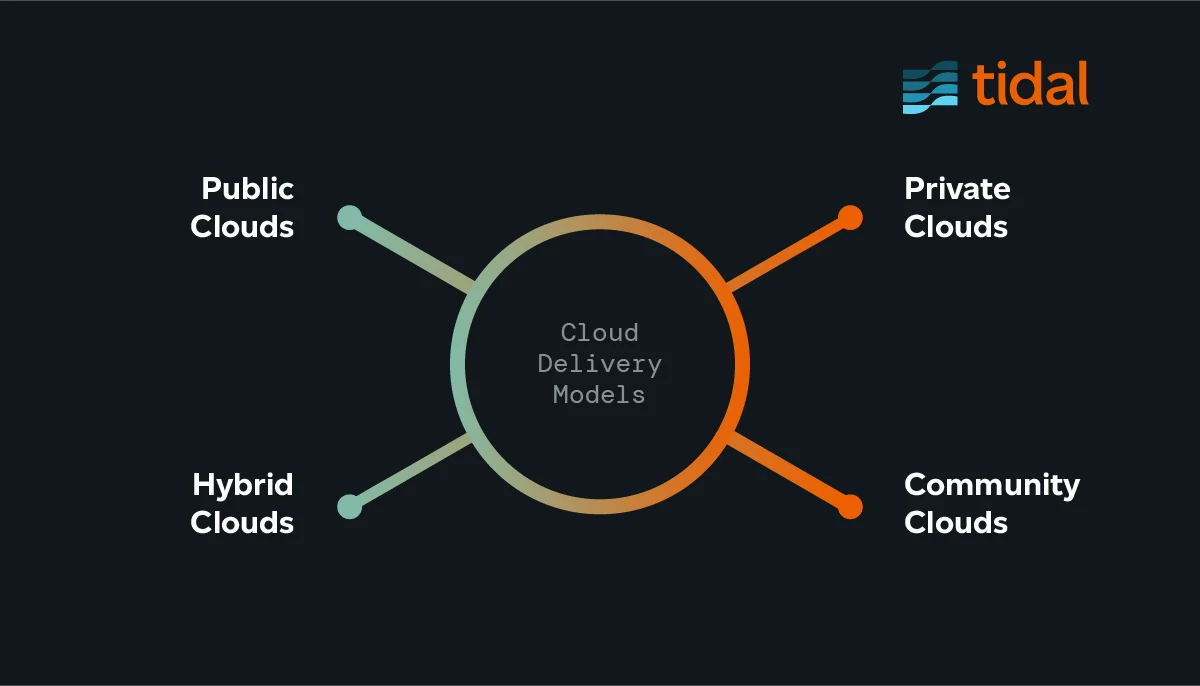What is Public Cloud Delivery?
The public cloud is a third-party managed platform that provides various computing services and resources over the public internet, available to anyone who wants to purchase them. Public cloud resources may be free or purchased on a on-demand basis, allowing customers to pay-per-usage for CPU cycles, storage, or bandwidth, enabling organizations to scale resources and only pay for what they consume. The public cloud delivery model offers flexibility, scalability, and cost-effectiveness, making it ideal for hosting websites, running applications, and storing large datasets. Industries ranging from startups and small businesses to large enterprises across sectors such as technology, e-commerce, and digital media commonly utilize public cloud services for their diverse computing needs.
Below are the most prevalent public service providers. Tidal is honored to collaborate with:
Private Cloud Model
A private cloud model offers dedicated infrastructure exclusively for one organization, ensuring heightened security and control over sensitive data. This model utilizes virtualization and automation technologies to optimize resource utilization and streamline management, commonly found in highly regulated environments like healthcare due to stringent data privacy and compliance requirements. Not accessible to the general public, private clouds provide organizations with complete autonomy over their cloud environment and full control over management tasks. They are always maintained on a private network. Industries that commonly utilize the private cloud model include finance, government, legal services, manufacturing, and healthcare.
Hybrid Cloud Model
A hybrid cloud model combines the advantages of the public cloud and private cloud, providing organizations with unparalleled flexibility and scalability in deploying workloads. By leveraging this model, businesses can strategically allocate their applications and data across both cloud environments, tailoring it to meet specific needs and optimize performance. It offers resilience and redundancy by spreading workloads across multiple environments. In the event of a service disruption or outage in one environment, applications seamlessly failover to the other environment. Financial services often use hybrid models to keep critical data on-premises while leveraging the scalability and agility of the public cloud for less sensitive data. This approach ensures regulatory compliance and enables cost-effectiveness.
Community Cloud Model
A community cloud model, also known as the multi-cloud model, offers shared infrastructures catering to multiple organizations in a specific community or industry, notably in the government or healthcare sectors, where entities share similar compliance or security requirements. Functioning as a hybrid form of private cloud, it offers a multi-tenant platform. Healthcare organizations, such as hospitals, clinics, or research institutions have strict compliance and security requirements and often utilize the community cloud. Collaboration among organizations enables shared costs and resources facilitating the attainment of mutual objectives.





